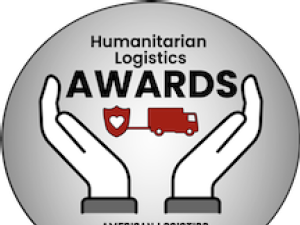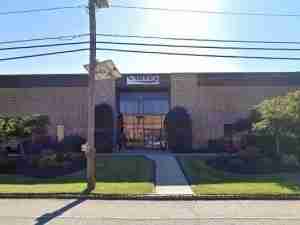Results of the LaMiLo research project for greater efficiency over the last mile
Karlsruhe, Germany, 21/07/2015. At the final conference for the research project LaMiLo (Last Mile Logistics) at the end of June in Brussels, the project partners presented the results of their research on the future of the last mile. In short, the last mile problem in urban logistics can best be overcome if everyone involved comes together to work on more efficient, sustainable solutions. Sharing is the new winning.
Globalisation and e-commerce have changed the way we shop and the way goods are delivered to the end customer. As a result, many logistics companies have extended their supply chain up to the end user, increasingly operating across borders and with a wide range of forwarding companies supplying the same areas. However, this is done without sharing capacities. The upshot: Deliveries to the end customer are segmented into large numbers of tiny deliveries made with large numbers of individual vehicles, and with little coordination. This is not just less efficient, but it also leads to more and more traffic, as well as air and noise pollution. The problems are increased even further by unnecessary or additional journeys made when the customer is not at home.
Sharing and cooperation are the recipe for success. This is where the research project comes in: “LaMiLo wants to show new possibilities for city logistics over the last mile by understanding and influencing the actions of all those involved – those of private companies, the public sector and customers”, says PTV Project Manager Philipp Lenz. This includes a number of measures, such as raising awareness of the problems among the different interest groups, carrying out practical pilot tests, taking different modes of transport into account, and possibilities of reducing impacts like noise, traffic and emissions. The different solutions implemented and tested within the framework of LaMiLo also show that it’s not just the environment that stands to benefit. The measures also make transport logistics more cost-effective, as demonstrated by the internal project evaluation.
The first objective was to isolate the challenges and the barriers that have hindered the adoption of a common course of action in city logistics until now. In the process, it became clear how important it is for the public sector to address the problems in urban commercial traffic, working in cooperation with both companies and suppliers. This can be done for example by creating unloading zones specially designed for the needs of consolidated deliveries, or by setting up a common platform for all parties involved to promote cooperation and provide a clear overview of costs. Cost transparency alone can help many companies to quickly understand the benefits.
Alternatives for the last mile
In Brussels, a pilot project solved the common problem of several separate deliveries to a single address, with accompanying increased traffic and emissions. First, the delivery vehicles drove to a storage depot where the goods were consolidated before being delivered – where possible, using low-emission vehicles. In the London borough of Camden, a similar solution used consolidation to reduce delivery traffic to public organisations by 40%. In Paris, goods were first brought to smaller distribution centres, where they were bundled before being delivered to customers using electric cargo bikes. A similar pilot in the Netherlands even led to small deliveries being made at times that were particularly convenient to the customers.
These and other solutions from LaMiLo can be applied to medium and large European cities with little or no adaptation cost. The project partners hope that the pilots and the accumulated knowledge will allow other cities to implement the model themselves. An awareness of logistics and of the environmental and social impacts of freight transport should become a higher priority for cities. Because where local governments lead, others will follow.
The LaMiLo project is an INTERREG IVB North-West Europe project partly financed by the European Regional Development Fund (ERDF), in which 13 partners from 7 north-west European countries took part. Organisers and researchers from the public and private sectors worked together to make the last mile sustainable and more efficient.
PTV. The Mind of Movement
The PTV Group provides software and consulting for traffic, transport logistics and geomarketing. Be it transport routes or sales structures, private or public transport – we plan and optimise everything which moves people and goods worldwide.
Our range of products and services includes Software & Services, Components, Data & Content and Consulting & Research. Customers in more than 100 countries rely on our solutions. Our software tools enable private and public sector organisations to perform their everyday tasks in a highly efficient manner. And right at the forefront: our market-leading product lines PTV Map&Guide for transport route planning, PTV Smartour for trip planning, the software components PTV xServer as well as PTV Visum for traffic & transport planning and PTV Vissim for traffic simulation.
Scientific expertise is one of our particular strengths. We run projects in a goal-based and practice-oriented manner. Currently, we have over 600 employees worldwide crafting powerful and innovative solutions. Our head office, which is located in the technology region of Karlsruhe, Germany, has been the centre of development and innovation since the formation of our company in 1979.
The German company PTV Planung Transport Verkehr AG is a member of the PTV Group.
www.ptvgroup.com.

